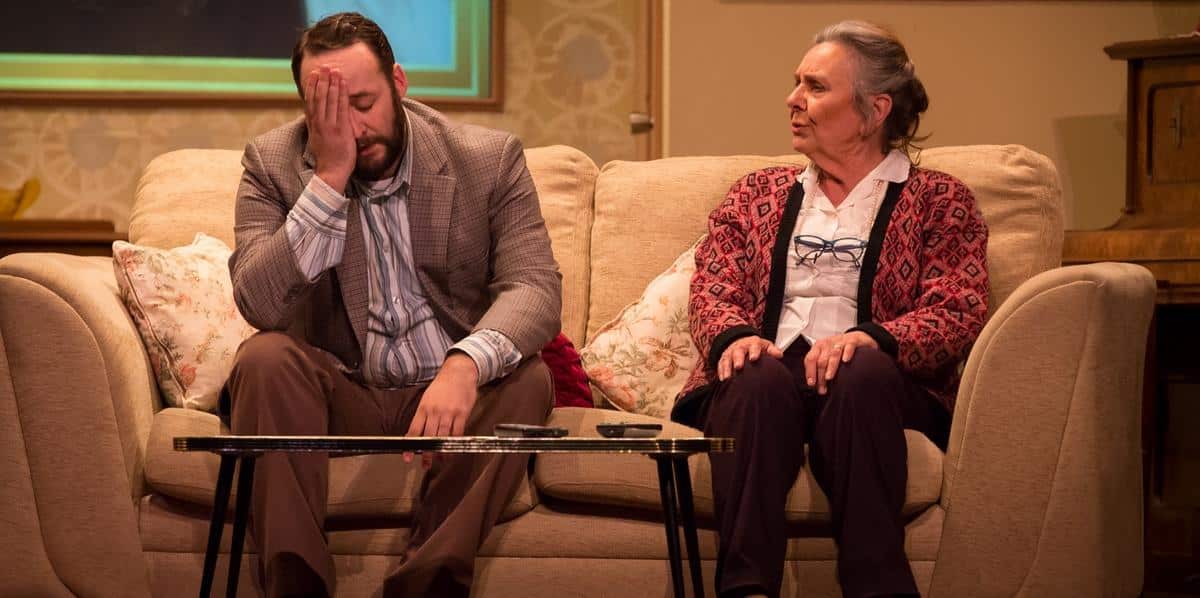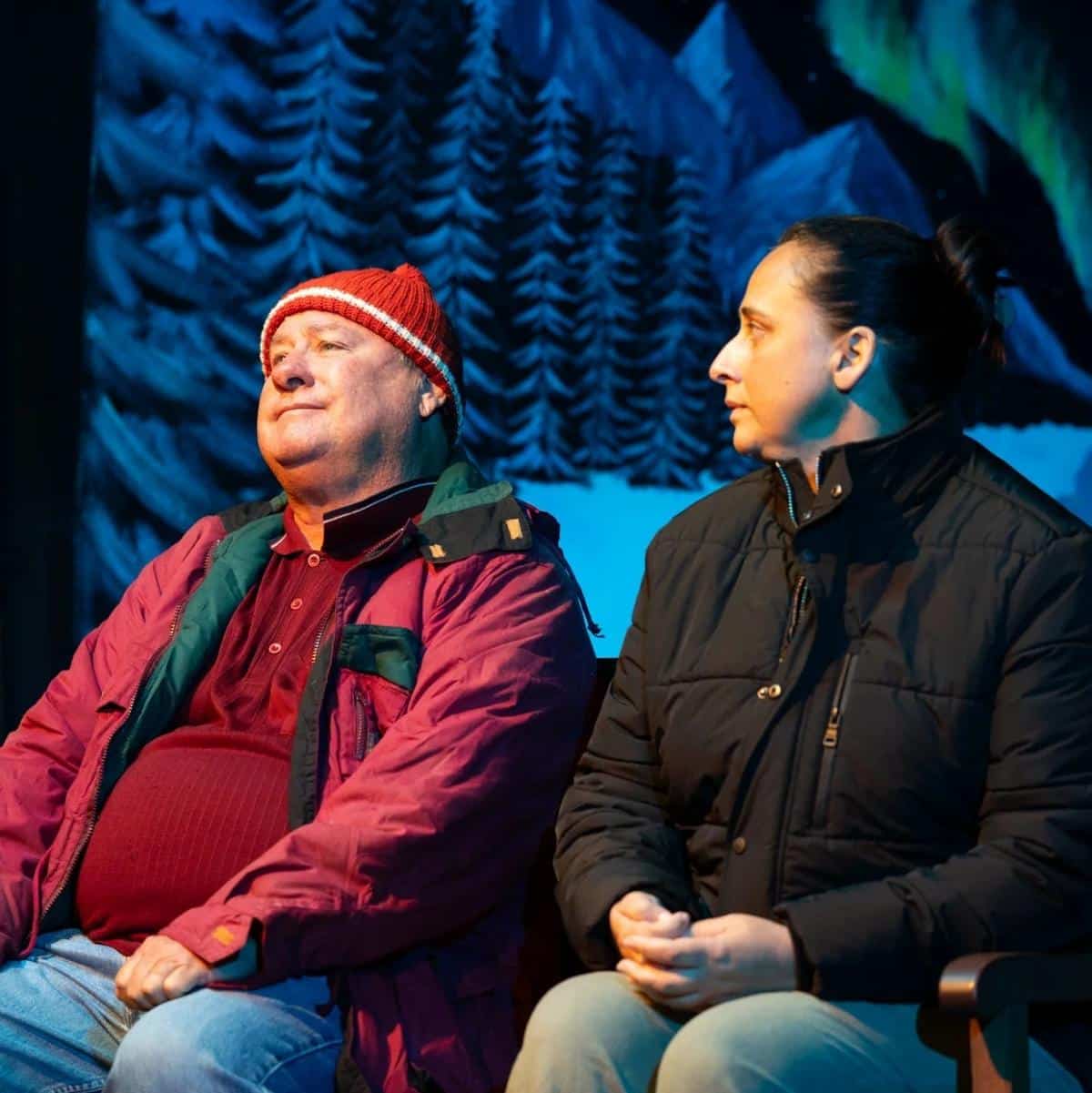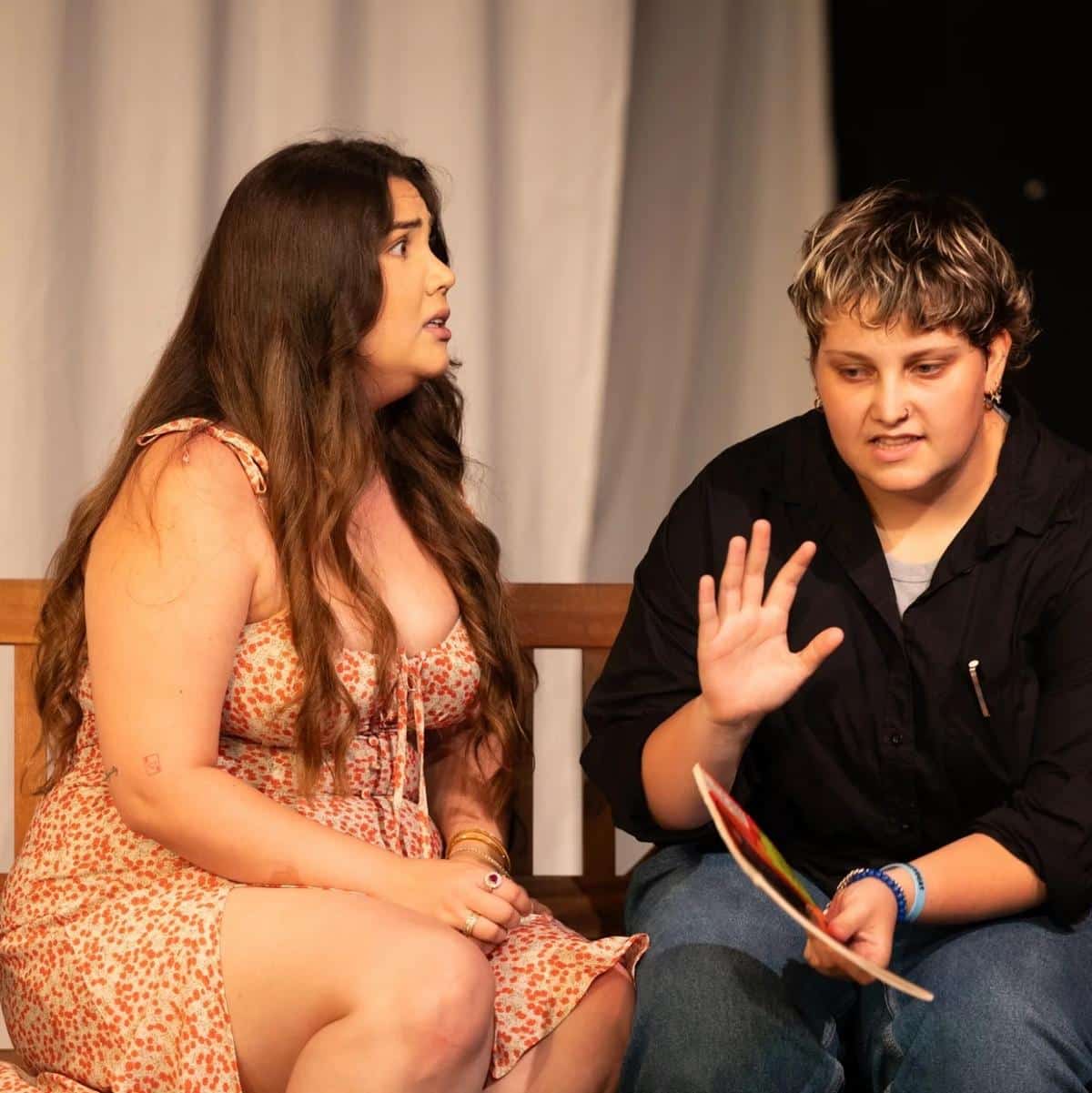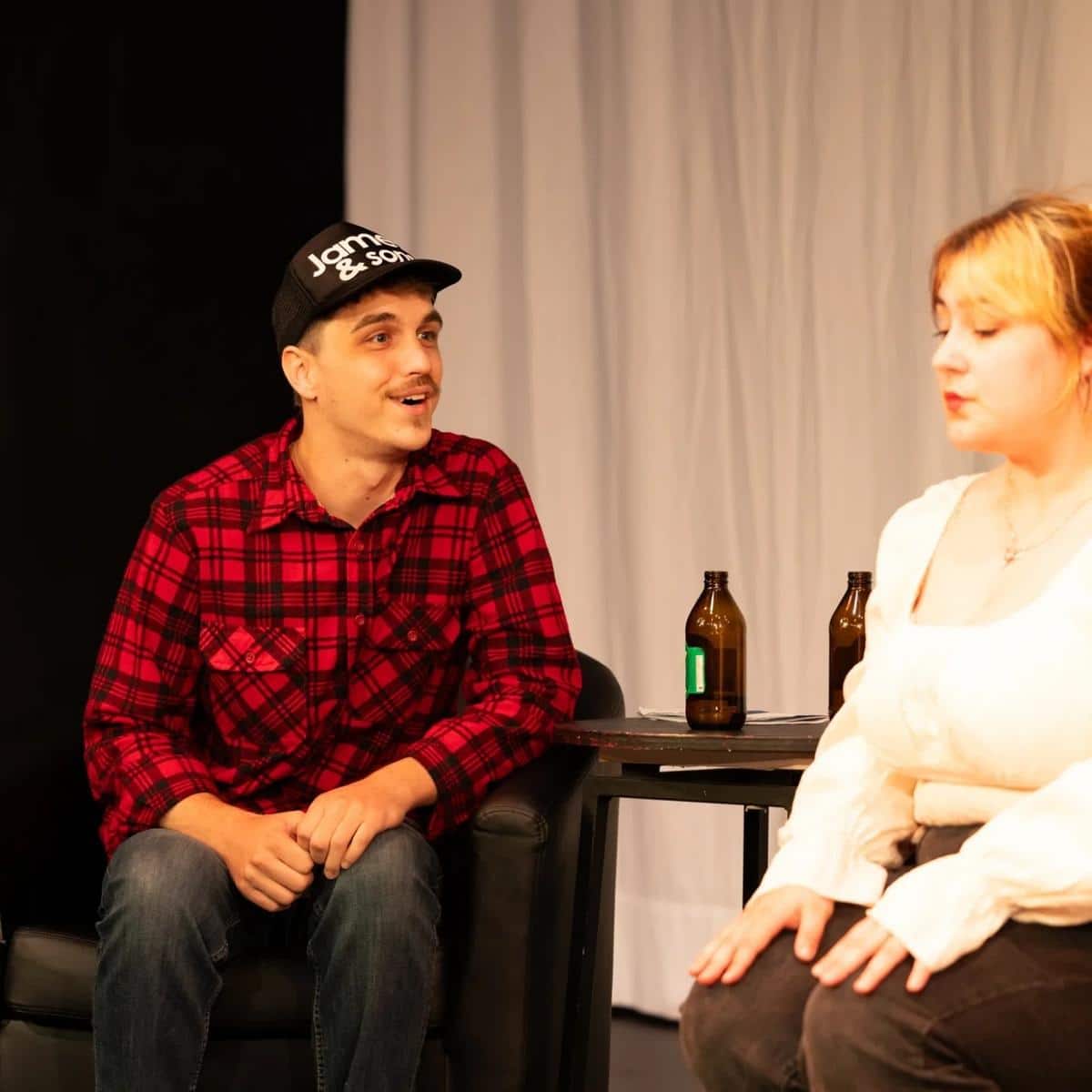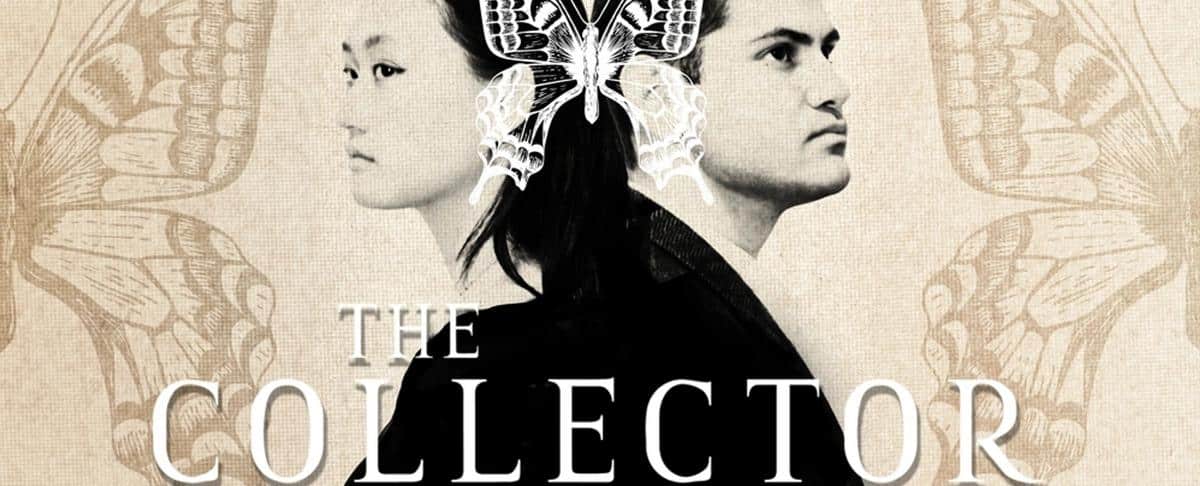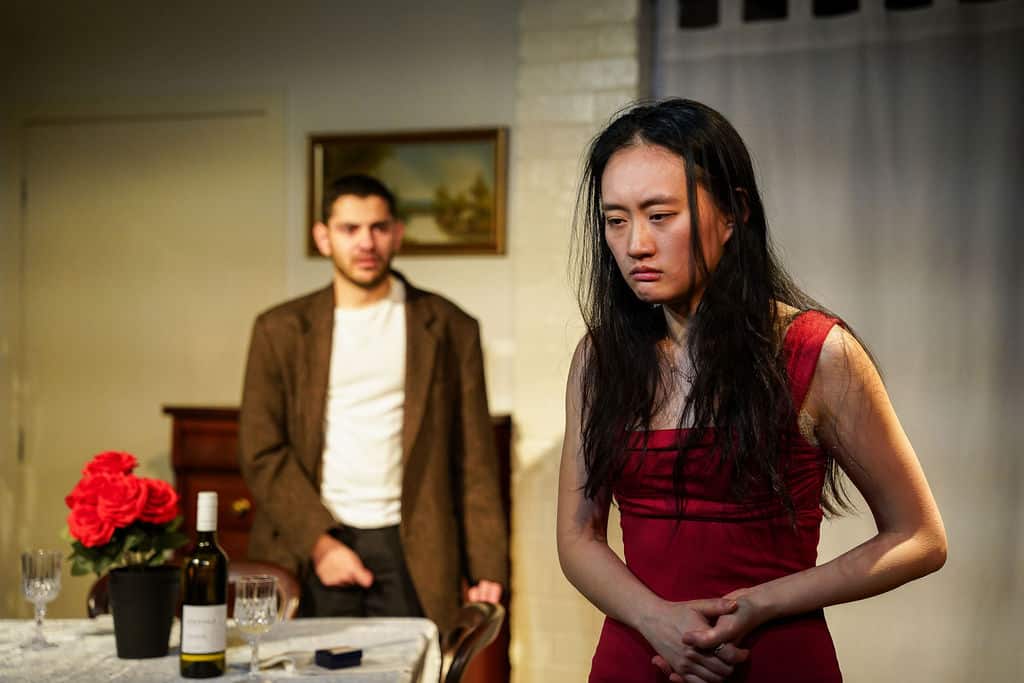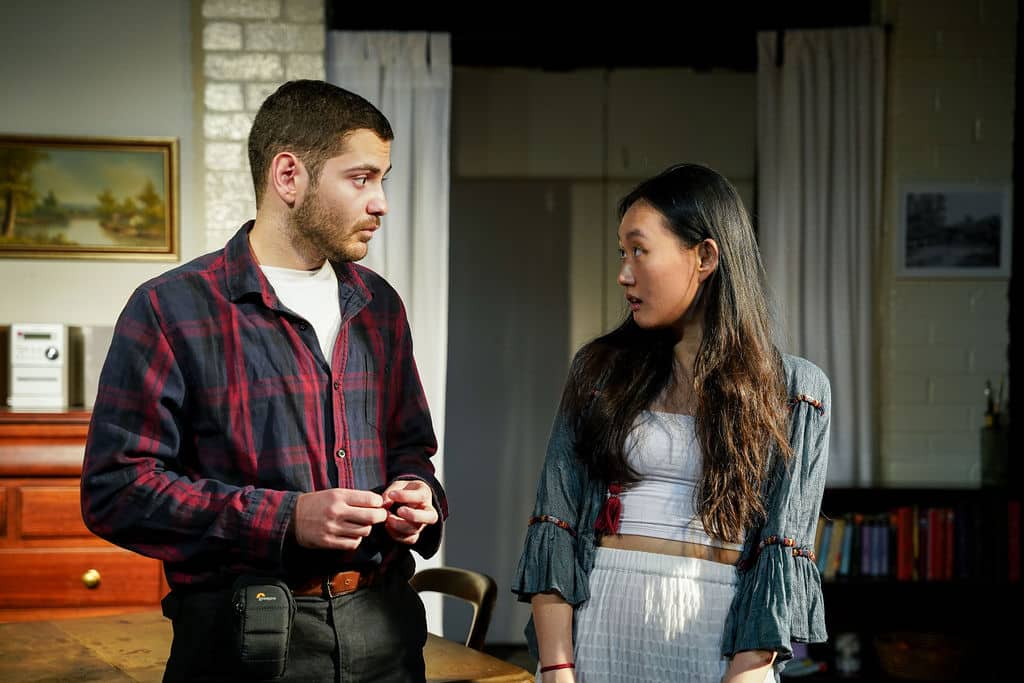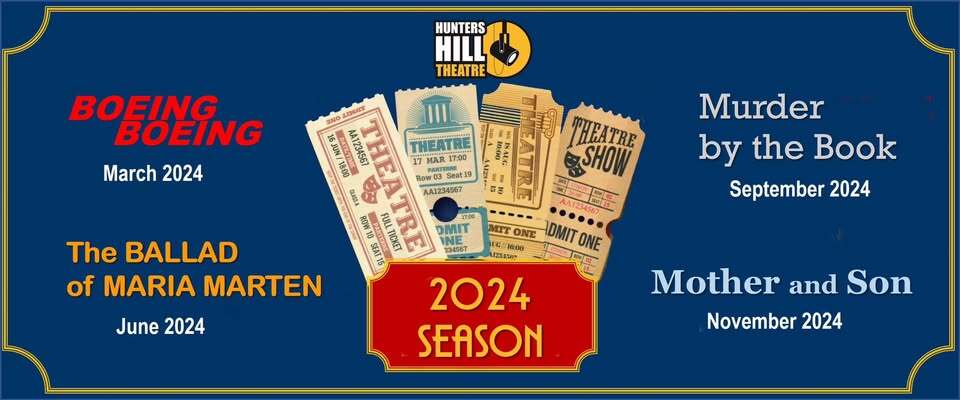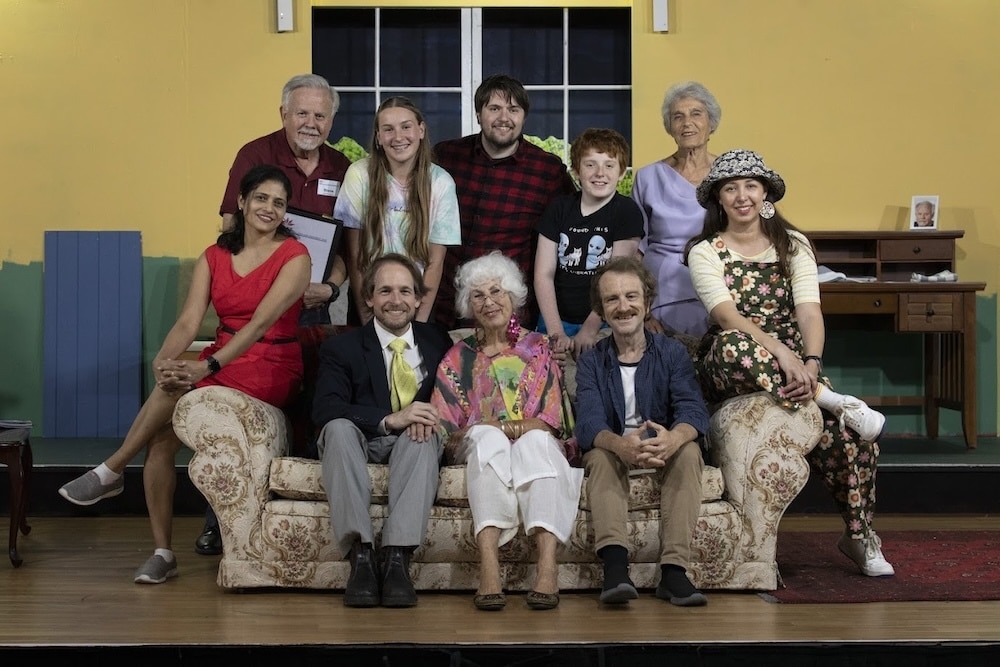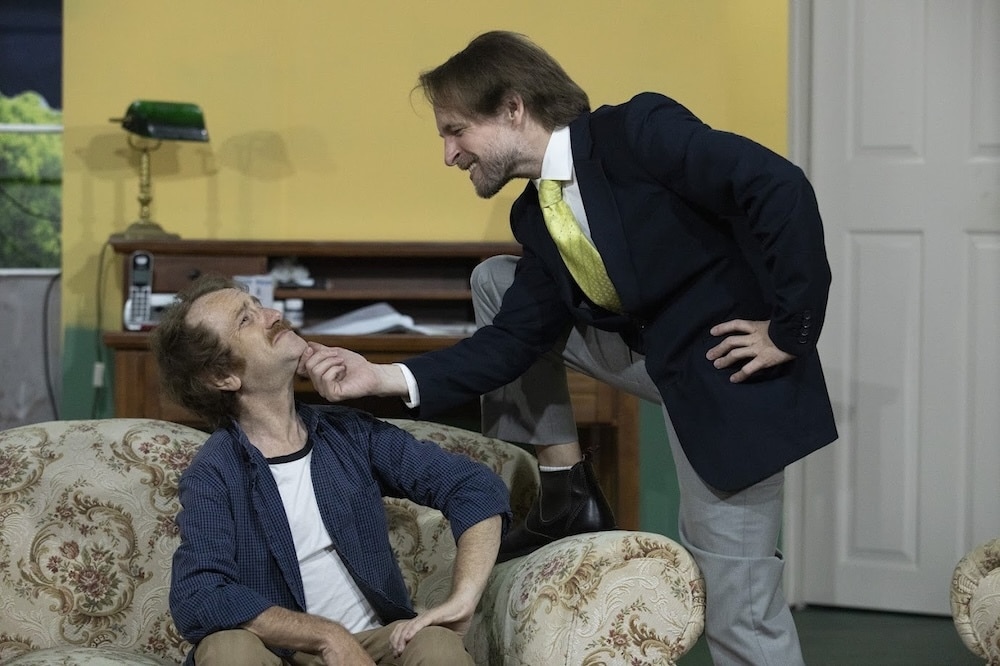The Adelaide Repertory Theatre’s Mother and Son delivers a perfect blend of humor and heart, offering a touching yet funny exploration of the challenges that dementia brings to a family. Based on Geoffrey Atherden’s iconic 1980s TV series, this stage adaptation shifts the story into a contemporary setting, where aging mother Maggie (Penni Hamilton-Smith) and her devoted son Arthur (Patrick Clements) navigate the ups and downs of memory loss, family dynamics, and caregiving.
Penni Hamilton-Smith’s portrayal of Maggie is a standout—funny, vulnerable, very expressive and incredibly warm. Despite her memory lapses and confusion, Maggie’s wit and charm shine through, and by the end of the play, the audience is utterly captivated by her. Hamilton-Smith’s performance builds a deep emotional connection with the audience, a true testament to her skill in drawing the crowd in.
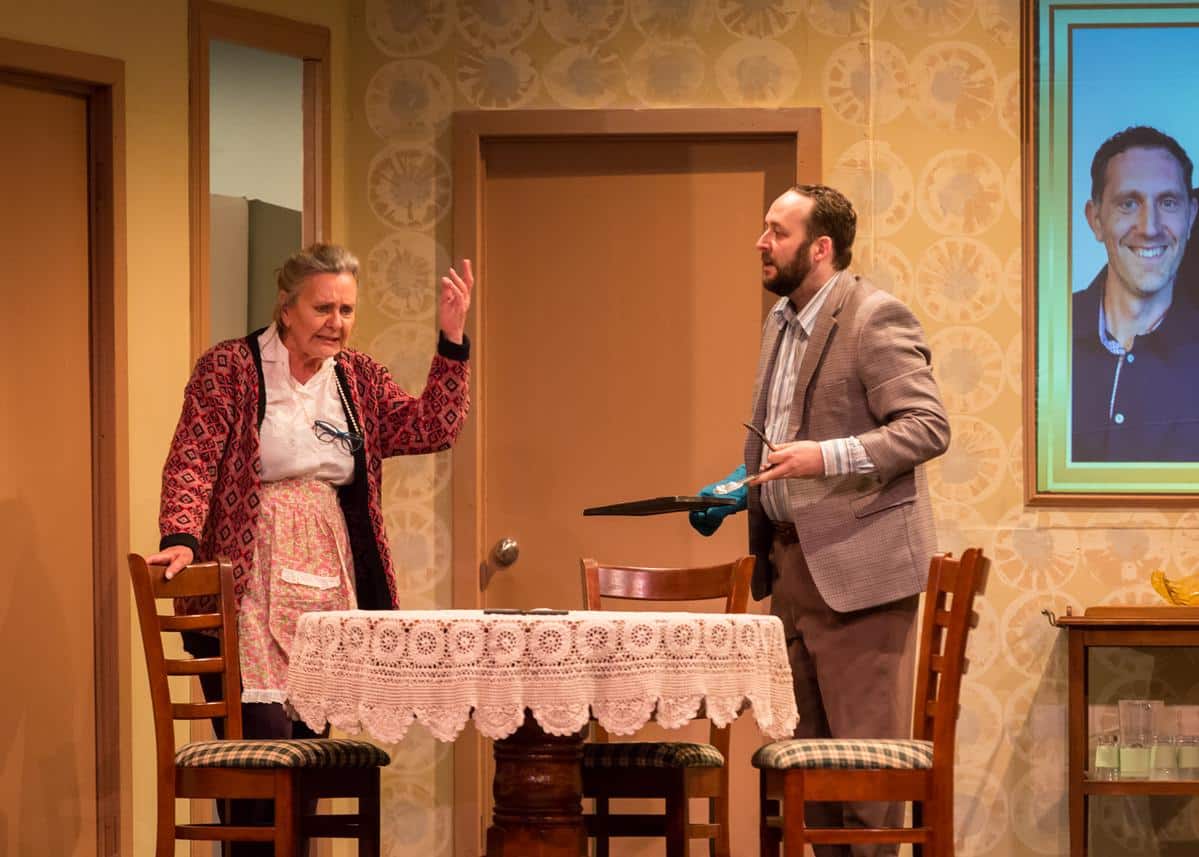
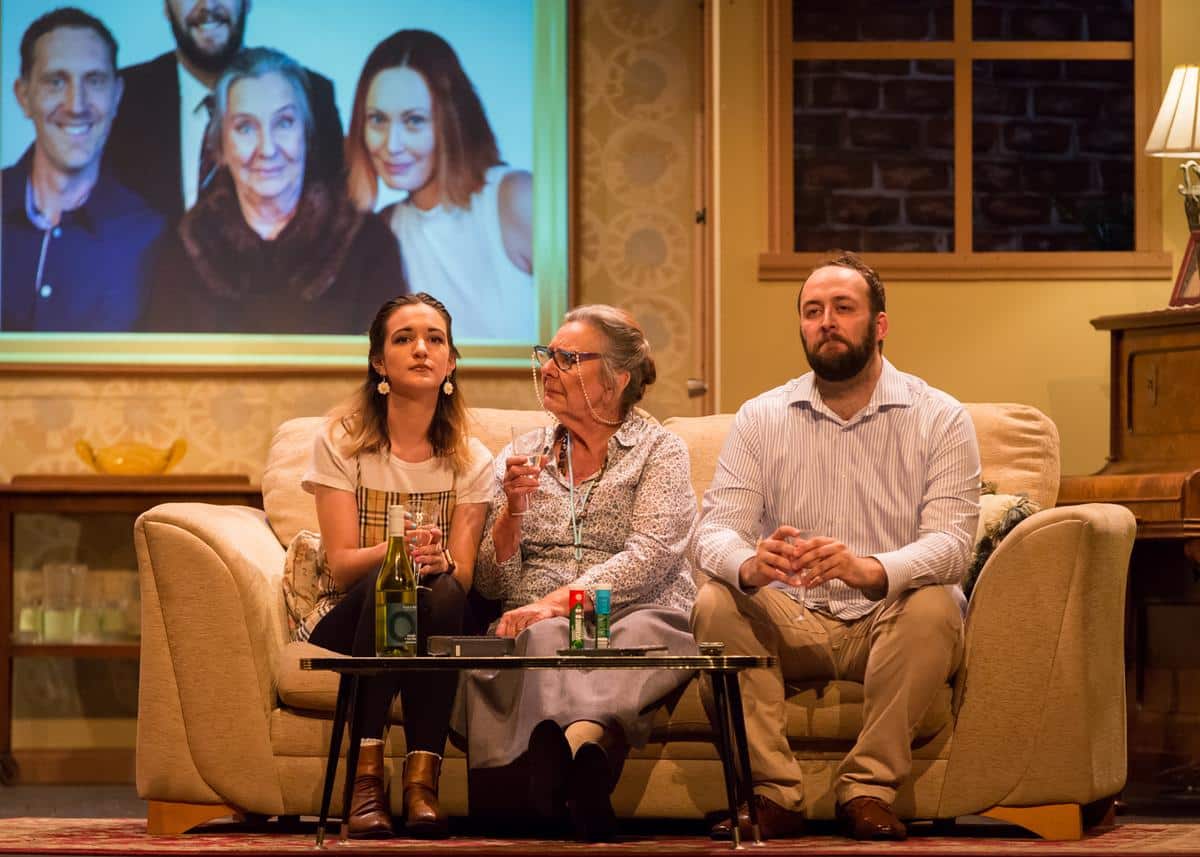
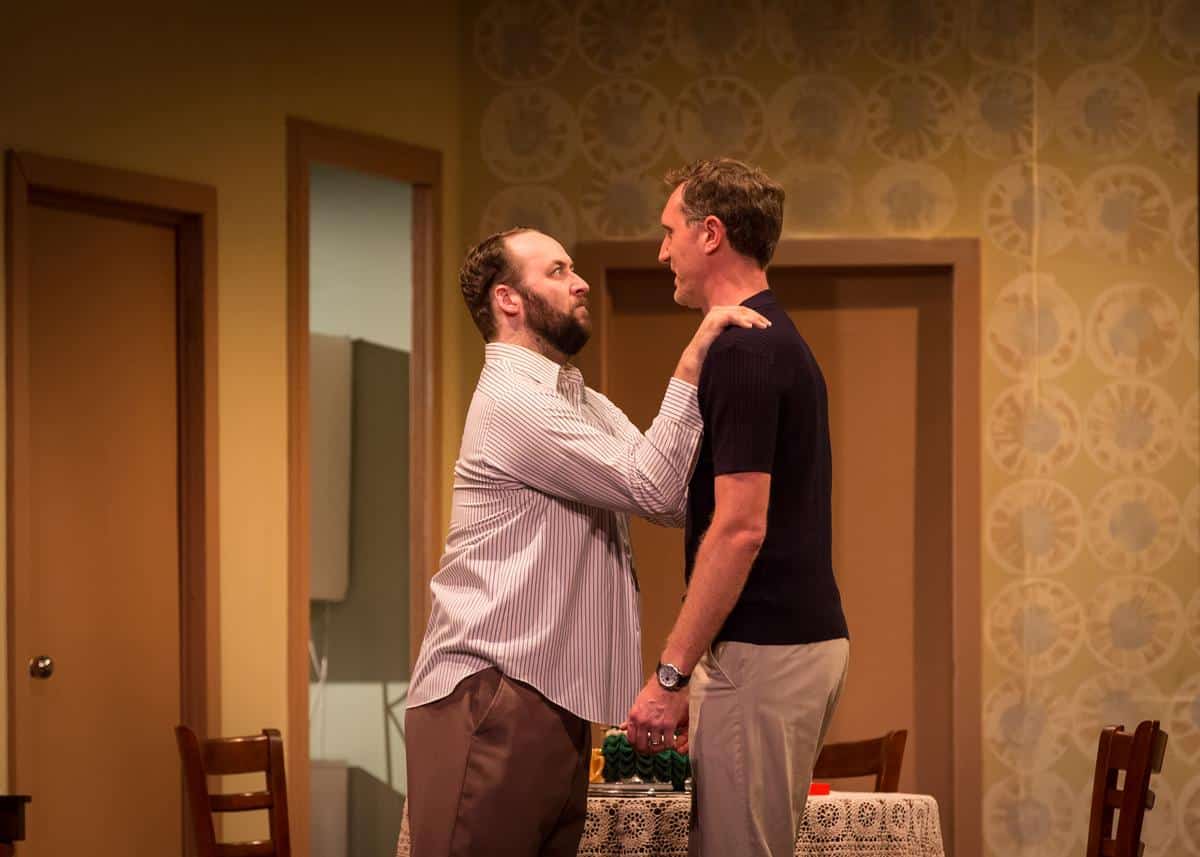
Arthur, played by Patrick Clements, is the long-suffering son who takes on the role of caregiver, torn between his duties to his mother and his desire to live his own life. The contrasting personalities of the two Beare brothers—Arthur, the reliable but exasperated caretaker, and Robert (Stephen Bills), the successful but largely absent dentist—add another layer of complexity to the family dynamic. The family’s comedic mishaps, from Robert’s dubious life choices to Maggie’s comically excessive admiration for him, provide plenty of laughs, but also bring attention to deeper issues of responsibility, loyalty and family dynamics.
The modernised setting introduces relatable elements—mobile phones, telemarketing, and video calls—that add a fresh twist to the play. Video interactions with the Beare family’s grandchildren, projected on a large screen, reflect the generational divide and give a humorous yet poignant glimpse into everyday family life. These technological touches also highlight the growing gap between the older and younger generations, amplifying the play’s themes of communication, disconnection, and change.
The supporting cast delivers equally strong performances, with notable appearances by Mollie Mooney as Anita, Arthur’s romantic interest, and Jessica Corrie as an Aged Care Assessor. Sandy Whitelaw’s cameo as Monica, a no-nonsense resident in an aged care home, is a hilarious high point that underscores the play’s deft handling of both humour and pathos.
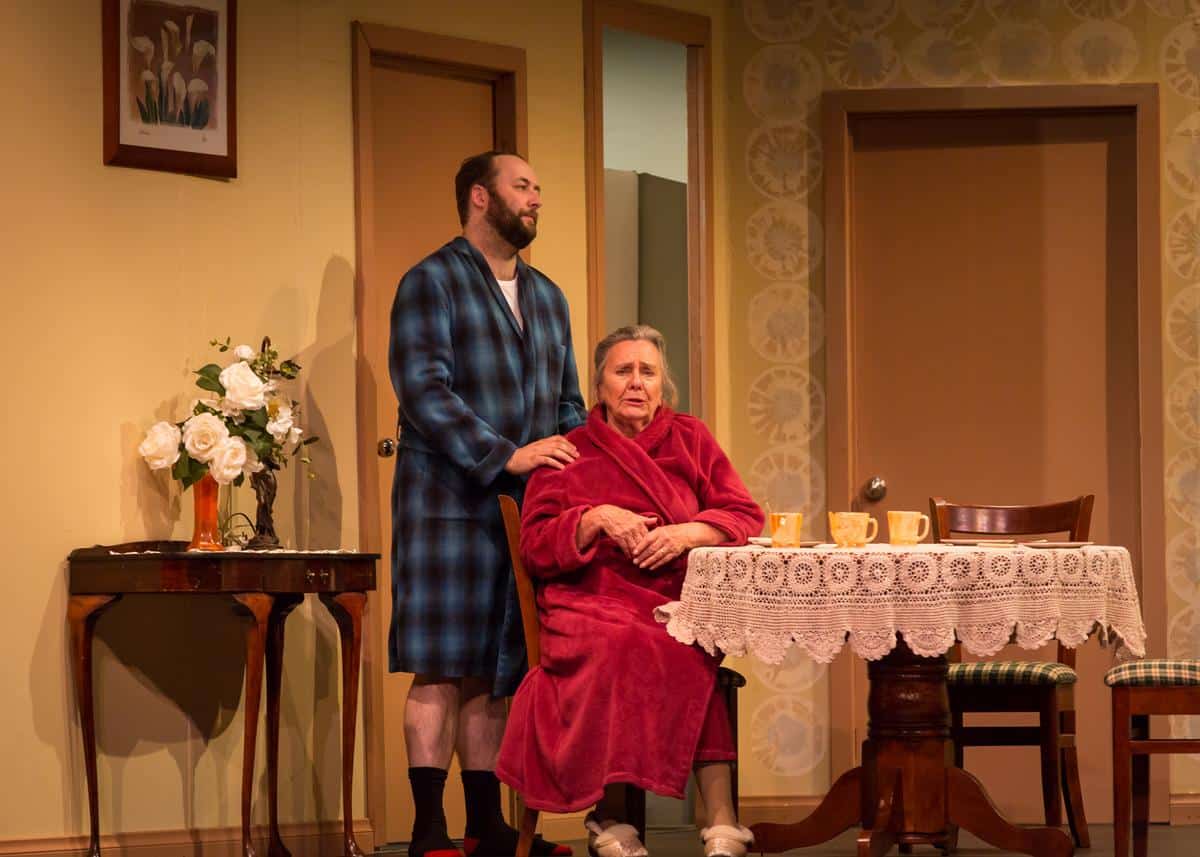
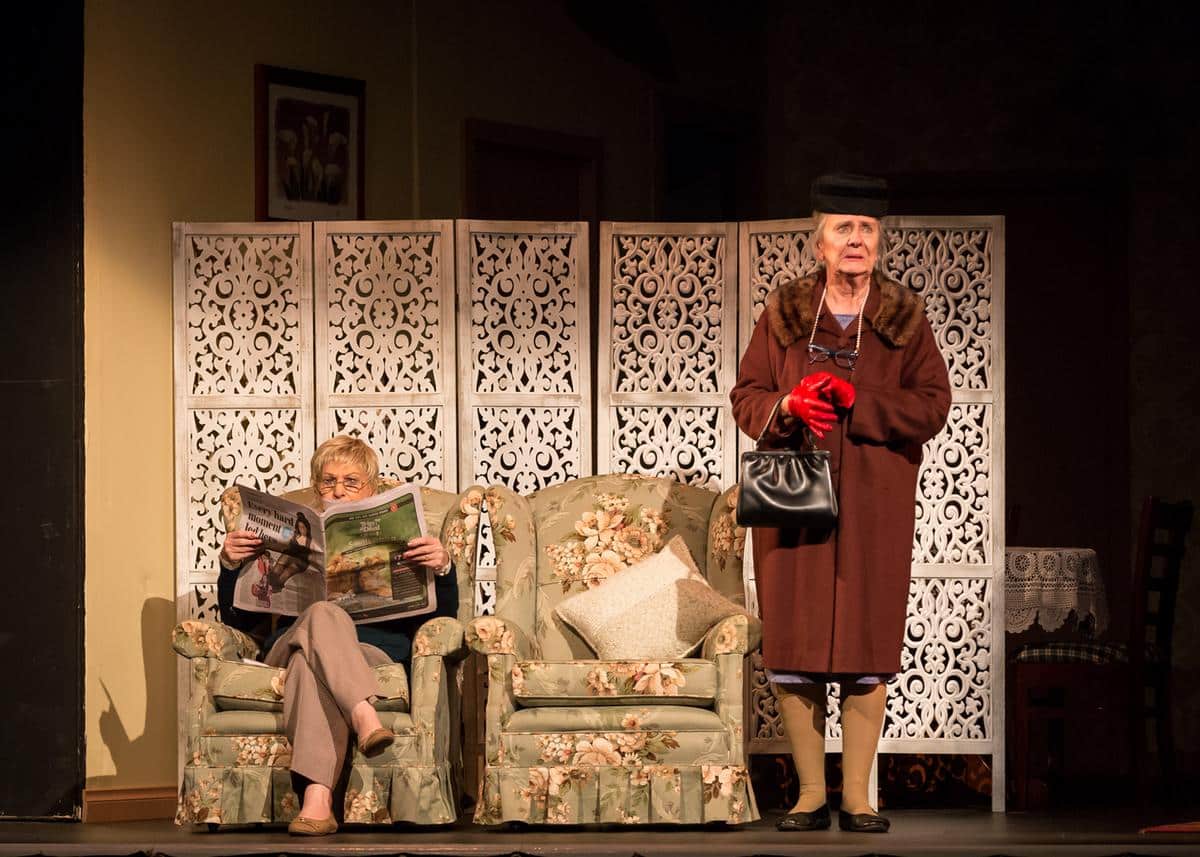
Under the direction of Jude Hines, Mother and Son expertly balances light hearted moments with poignant reflections on aging, care, and family obligations. While the play provides plenty of laughs—often at the expense of Maggie’s confusion or the absurdities of caregiving—it also offers a deeply human portrayal of the emotional toll dementia takes on families. The audience is left with much to reflect on, from the fear of loneliness and institutionalisation to the everyday struggles of maintaining family bonds.
The set design cleverly evokes the atmosphere of a family home and the production’s contemporary touches, including the use of technology, ensure that Mother and Son feels fresh and relevant while staying true to the spirit of the original show.
In the end, this is a play that’s as much about the heart as it is about the laughs. With its excellent performances, sharp humour, and emotional depth, Mother and Son is a beautifully executed exploration of the challenges of family life, caregiving, and growing old. Whether you’re a fan of the original television series or coming to the story for the first time, this production is sure to leave you both laughing and thinking long after the final curtain.
To book tickets to Mother and Son, please visit https://adelaiderep.com/season-2024/mother-son
Remaining Shows
Thu 28 Nov at 7:30pm
Fri 29 Nov at 7:30pm
Sat 30 Nov at 2:00pm
Sat 30 Nov at 7:30pm
Photography by Richard Parkhill
